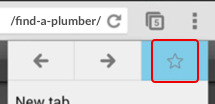A plumber came to me recently concerned about the amount of money he had outstanding for the work his company had completed, and it was beginning to take its toll. If you own your own business, you probably know what I’m talking about.
Firstly, I know there’s rules, including the regulations and legal rights governing payment procedures but let’s face it, they get broken all the time and there’s no joy in trying to convince crooked people to do the right thing. I’d rather refine the way I operate to avoid these stressful situations entirely and get my money. The only courtroom I want to know anything about are the ones I see on Law and Order. Here’s what I told him about money and the business of plumbing.
Whoever has the money makes the rules and therefore has the power too, it is the golden rule of any transaction. Think back to when you were a young child and wanted a skateboard, new bike or a remote control car. You had to beg Mum and Dad because it was the only option, they had the money, made the rules and had all the power.

Fast forward a decade or two and many of us have graduated to a higher level of begging. Substitute Mum and Dad for Client X who still hasn’t paid for their hot water service that you installed four months ago, and you quickly realise it’s the professional equivalent of the exact same problem: you need money and it can only come from one place.
The game is the game and success is enjoyed as you become a better player. So, the real question for you and your business is in what position do you want to play? Do you want to write your own ticket or remain at the mercy of others? Let me explain.
Simplified, and from the perspective of a business owner, the typical flow of a plumbing transaction goes something like this: a customer has a request and sends you the job, you survey the job, buy required materials, organise the labour, complete the job and send the invoice off to the customer. Then, in most cases, you pray.
Let’s think about this: Does it really make sense to invest your time, energy, effort and money to solve your customer’s problem before they are required to invest in the transaction? It certainly doesn’t to me. There’s a reason you can’t go and buy a hamburger or a pair of sneakers and ask them to send you an invoice later. Retailers know some people will forget to pay or refuse to pay later, so they don’t take that risk.
Too often, plumbers get caught trying to be banks. If you are not collecting payment at the time you complete your jobs, you become a bank by default because you are funding jobs as well as completing them. Furthermore, you’re probably not charging for that financing either, its lose-lose. Someone once told me “Banks are called banks because they are banks, plumbing companies are not called banks because they are not banks!”
So, how do you avoid becoming a bank? Put simply, you don’t allow yourself into a position where a customer has leverage over you.
If you do a job and walk away without collecting payment, the baton has been passed, the customer has the leverage and you’re in a losing position. Even if the client does eventually pay, you still have to finance the job in the meantime. Again, you’re not a bank.
You can solve this problem very easily by setting the rules of engagement BEFORE you invest in the transaction. For large jobs, that will probably involve written paperwork but for tradies in the service and maintenance sector, it’s an easy conversation.
Let’s assume Client A calls on a Saturday afternoon with a leaking pipe. Instead of dropping the fishing rod and sprinting to the truck, let them know what they should expect before you head to site. Tell them what your fees are, explain that you will take payment on completion of the job and the ways in which you take payment. Then, ask which method they will be using to make payment. It’s that easy.
Now, does the method guarantee you get paid every time? In my experience, it does. Not because bad people start doing good things with their money, but because you weed out all those bad people before you engage with them. For example, if a client (or potential client) calls and then questions your rates, invite them to call around and check other companies first.
If Client A is worried about paying before her leaking pipe is fixed, there’s a fair chance they’re going to be questioning it a whole lot more four weeks from now when the invoice arrives, and they no longer have a pressing problem to solve.
I know someone’s going to read this article and think “What the heck? This will never work for me in my business, with my customers.”
And you might be right, which means you’re left with a choice; either change your ways and ditch your non-complying customers or quit complaining, get used the stress and living with money worries because it’s not going to change. Save your energy and go dig another under-priced hole.
In my experience, almost all payment problems originate before the job even starts. If you’re an honest person, do good work and charge accordingly, then you deserve to be paid. There’s plenty of people who want something for nothing, but you don’t have to work for them.
The plumber I helped is enjoying having control over his cash flow. It’s a different game when you collect your money before you have to pay your expenses. Play a game you can win.
From the trenches
Matt Reynolds is an award winning plumber who writes about the game as an industry insider. You can find him at xrm.com.au or as the Director of XRM Plumbing Services on LinkedIn.
Share this Article






